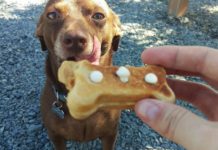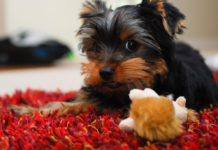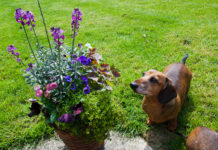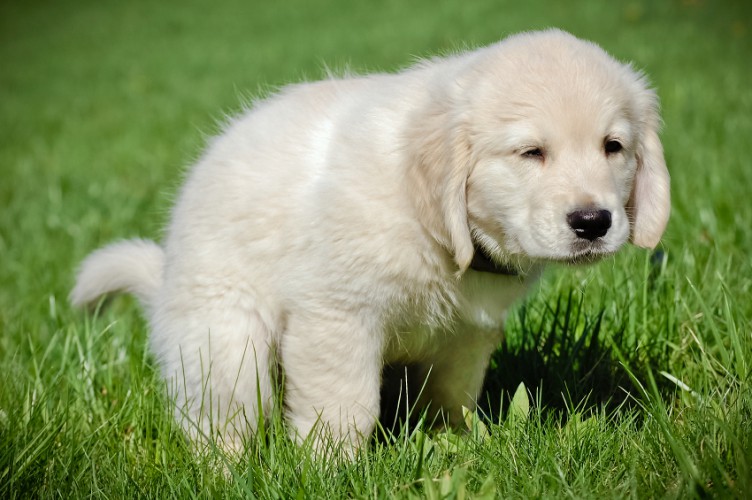“How do you know when he needs to go?” is a familiar question many new dog owners ask when they bring their puppy home for the first time and are preparing for puppy potty training. During this introductory period, the answer to that question may not be the most apparent, especially after your adorable, little ball of fur announces his presence by staking his claim to a section of your living room. Don’t fret though.
The good news is that this mystery period doesn’t last very long before you’ll be able to identify those subtle and not-so-subtle moments when he is telling you that he really, really needs a trip to the bathroom.
There are two main keys to ensure you are setting your dog up to be a star pupil with his puppy potty training lessons. They are:
- Make sure you’re not giving him too much freedom too soon in the house, especially without proper supervision. Really pay attention to your puppy during this puppy potty training period. Unsupervised time leads to accidents. Remember at this stage in his life, if you give him an opportunity to make a mistake, chances are, he probably will. Keep areas to the house closed or gated off from the puppy unless you are around to supervise him. Until he is completely potty trained you need to be aware of his actions and be able to interrupt him either before or just as soon as problems occur. This is probably your most important component.
- Create a daily eating and elimination routine and really stick to it until you know he is completely potty trained. Examples are feeding him at the same time every day, taking him out the same door and to the same spot every day. Another tip is,as soon as you get him home for the first time, immediately bring him out to the designated bathroom area and try to wait him out so that he does his business there. When he does, give him a lot of praise and petting and maybe even a small cookie. Make this event very rewarding; so he’ll get the picture that doing that particular thing in that particular place is a very good thing.
10 Puppy Potty Training Tips
- Remember, don’t punish (yell, scream, rub dog’s nose in the accident, etc). It will only make matters worse and could lead to other problems.
- Always clean up “accident” with an odor neutralizer such as Nature’s Miracle. Soap and water may not get rid of previous odors. You can also use a quarter teaspoon of baking soda to quarter cup of warm water solution to dilute the spot.
- Try not to draw attention to accidents by letting the dog see you clean them up. Put him in another room or outside.
- Make sure to take him out after the following events: waking up, getting up from resting, drinking water, eating, playing, running around, training, and actively sniffing.
- When he is doing really well without accidents on your schedule, try to make him wait a little longer gradually by getting him to hold it a little bit past his regularly scheduled bathroom visit. If he starts sniffing around, try to distract him for a few minutes with a ball or toy and then bring him out. The idea is to get him used to holding his bladder for longer periods while loose in the house.
- Keep to your routine. Don’t change it up on weekends or holidays. Consistency is key here.
- Take him out to the same area of the yard and make sure to praise him immediately after he’s gone. If you praise him while he’s going, it might make him stop going.
- Try to give him a cue, such as “go potty” to eliminate. Give the cue just before he starts going or as he starts. Don’t say it too soon or it might distract him from going. Also, make sure you know he’s going to go before you give the cue.
- Try to keep a log when he goes. This way you will keep to your routine and know exactly when he needs to go. Also, this will help you with Step 5 above.
- Don’t assume the dog has gone to the bathroom. Make sure you witness him going. If you bring him to his spot and he doesn’t go, you can bring him back in the house, but you must really confine him to a small area and supervise him well.
Always keep in mind during your puppy potty training that accidents do happen from time to time. This is to be expected. If you go into each training session with the expectation that the dog should never make mistakes, you are setting both of you up for potential failure. Approach each training session with a positive attitude and be realistic in your puppy potty training goals.
“Your puppy will catch-on much more quickly and easily if you do.”















